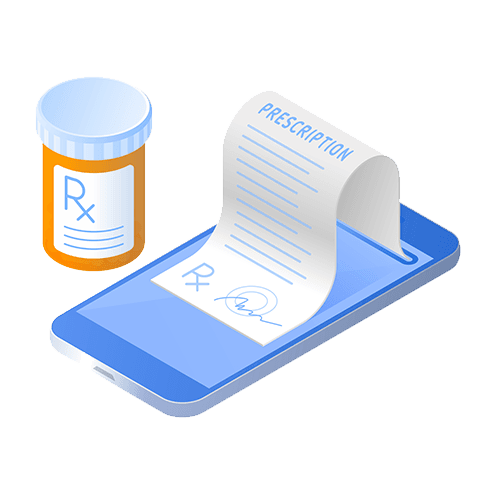How Can We Help You Today?
What is erectile dysfunction?
The consistent inability to achieve or maintain an erection firm enough for satisfactory sexual activity. It is a common condition that affects men of all ages, although its prevalence increases with age. ED can have physical, psychological, or a combination of causes.
It’s ok. At Medmate, we are committed to helping you find the right treatment options to address ED.

Treatments for ED

Consult with a healthcare professional to determine the most suitable treatment approach based on individual circumstances and underlying causes of ED. For discretion and convenience, you can talk to an online doctor with Medmate, at a time that best suits you.

Get ED treatment online

Simply fill out an express consultation request. Our clinicians will review your information, discuss a personalised treatment plan, and issue a digital script within minutes. With Medmate, you can skip the hassle of traditional clinics and get fast, discreet ED treatment from the comfort of your home.

What are the treatments for ED?

There are several treatment options for ED. These treatments work by enhancing blood flow to the penis, facilitating erections. All the clinicians we work with are 100% independent and will talk to you about the options.

Is it confidential to consult an online doctor about my problem?

Yes. Online doctor consultations adhere to stringent privacy guidelines and ensure confidentiality. Medmate online doctors are registered medical practitioners in Australia, and your personal information and medical records are safeguarded under Australian privacy regulations.
Frequently Asked Questions
What Causes Erectile Dysfunction?
There is no simple answer to what causes erectile dysfunction. There are a number of physical, psychological, and lifestyle factors that can contribute to the development of ED.
What Are The Symptoms Of Erectile Dysfunction?
The primary symptom of ED is the consistent inability to achieve or maintain an erection sufficient for satisfactory sexual activity. This can manifest as difficulty getting an erection, trouble maintaining it during sexual intercourse, or a reduced ability to achieve a firm erection.
What Treatments Are Available For Erectile Dysfunction?
Medical treatments are available that work by enhancing blood flow to the penis, facilitating erections.
It is essential to consult with a healthcare professional specialising in sexual health to determine the most suitable treatment approach based on individual circumstances and underlying causes of ED. For discretion and convenience, you can talk to an online doctor with Medmate, at a time that best suits you.

